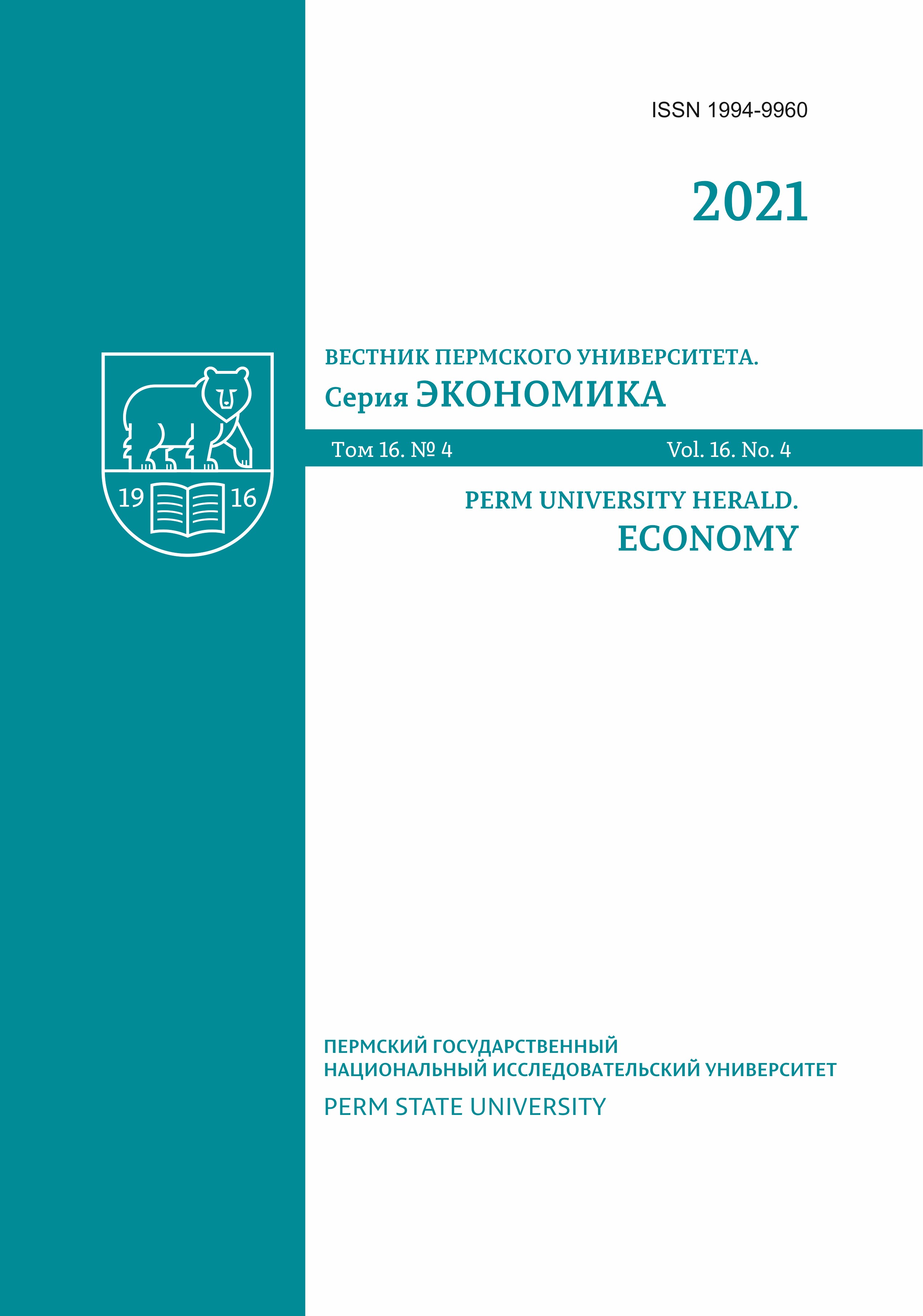Vol. 16 No. 4 (2021)

The final issue starts with the article devoted to the problem induced by the current decrease in the tourist flows due to the coronavirus pandemic. The authors developed different predictive machine learning based models for hotel booking cancellation and compared these models to justify the choice of the best model with such metrics as Accuracy, Precision, Recall, F-measures, and the area under the ROC curve.
In a section “Regional Economy”, the author draws readers’ attention to the efficient exploitation of the forest resources in the context of transition to green economy and offers methodological tools to measure forest depletion from a long-term and territorially differentiated reduction of the resource and worse cut-to-length structure of the forest resources. The author examines one of the RF forest regions – the Komi Republic.
In a section “Enterprise Economy and Management of Enterprises, Organizations, Branches, Complexes”, 1) a process approach is applied to reveal the possibilities for better organizational and financial performance of a modern corporation; 2) the results from a large-scale questionnaire-based survey among the representative heads of the companies doing their business in Volgograd City and Volgograd Region helped measure the efficiency of the investments into the human capital in the context of the companies’ needs and permanent increment of employees’ education capital; 3) an efficient mechanism is proposed for human resources management in industrial enterprises, this mechanism provides enterprises’ sustainable innovative development with regard to the unpredictable environment.
The final section of the issue “Current Issues of Accounting, Auditing and Economic Analysis” focuses on a crucial object of accounting with its significant impact on managerial decisions taken by users – deferred taxes. Analysis of the fundamental features of the deferred taxes and overview of the global practices in assessing the arising “differences”, their classifications, and accounting methods helped develop and justify classification characteristics of the deferred taxes with their grouping by methods of accounting, assessment and types. The second article of the section develops a list of marine transportation company’s expenses from the analysis of the eligibility of general expenses items with regard to the activities of shipping companies.









